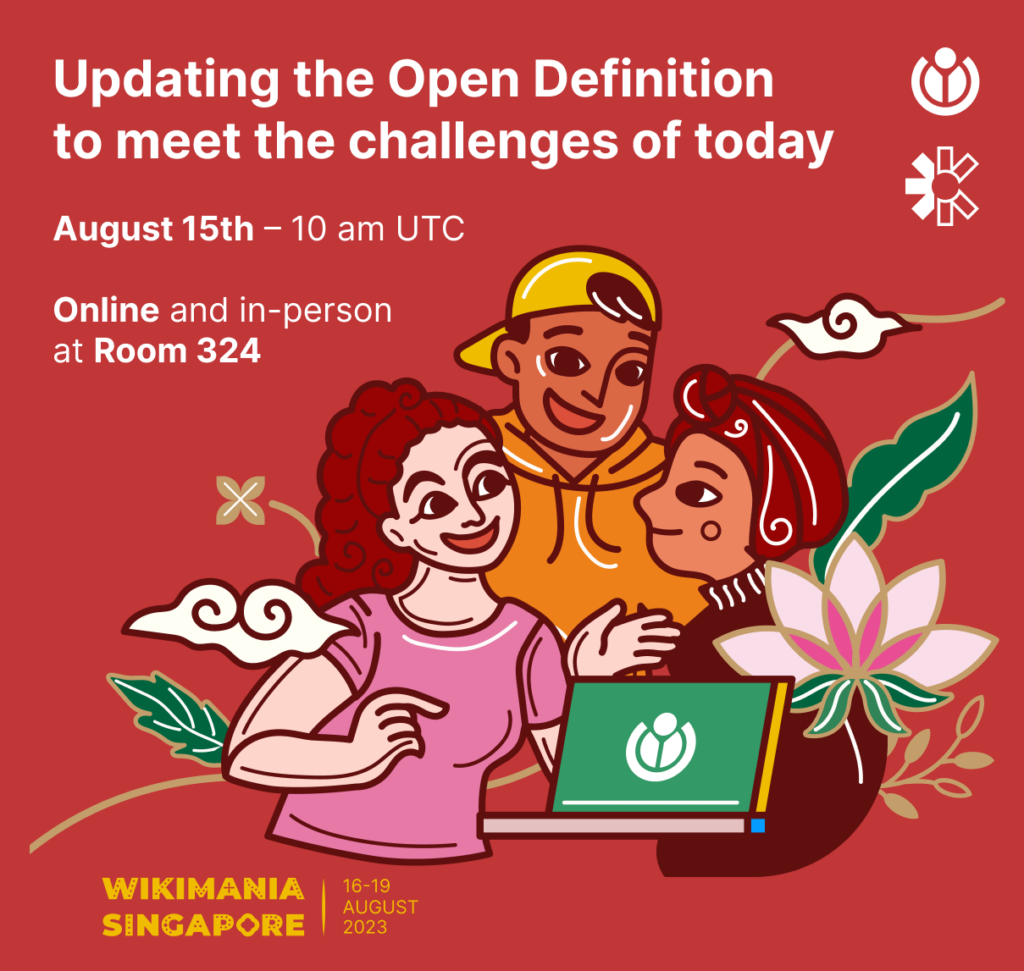
What does “open” 🔓 mean today? What should it mean? What has changed since 2015, when the Open Definition was last updated?
We at Open Knowledge are preparing another round of consultations on updating the “Open Definition”. We will have a hybrid session (both online and in-person) during Wikimania 2023 to ensure the voices of South Asian communities gathered in Singapore are heard and incorporated into the review process. It will be a practical workshop to discuss and write collectively.
- Date: August 15, 2023
- Hours: 10 a.m. (UTC) / 6 p.m. (Singapore time)
- Where: Online and in Room 324 at Suntec Singapore Convention and Exhibition Centre
- Link to programme: https://wikimania.wikimedia.org/wiki/2023:Program#Room_324
- Link to register: [coming soon]
The overall objective is to problematise each sentence of the current definition, version 2.1, and reach a consensus for the new generations. What does “open” mean in the context of data extractivism, artificial intelligence, digital colonialism, climate change, and economic, racial, and gender inequalities?
The Open Definition was a collaborative process led by the Open Knowledge Foundation over a decade ago that created a consensus among experts in defining “open” in relation to data and content. As our CEO Renata Ávila articulates in more detail, the macro intention of this project is to create a bridge between old definitions and new discourses to keep the open ecosystem alive and current.
You can prepare for the discussion by reading the main takeaways from the previous round of discussions, which took place virtually at MozFest in March and face-to-face at RightsCon Costa Rica in June. Also by understanding the perspective of one of the members of the Open Definition Council and historical open science activist, Peter Murray-Rust, in the conversation published within the framework of the project 100+ Conversations to inspire our new direction (#OKFN100).
More ways to join the conversation:
- Check the Open Definition discussion forum, where the previous conversations took place. Anyone is welcome to join and contribute.
- Check the Open Definition website (open to contributions via GitHub)
- Subscribe to the Open Knowledge Foundation Newsletter
- Follow the #OpenDefinition hashtag on Twitter, Mastodon and LinkedIn.
We hope we can meet in 2 weeks! If you can’t make it, please share it with friends and colleagues who will attend Wikimania.








